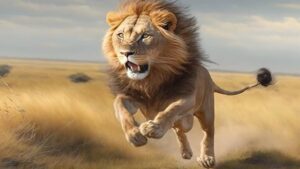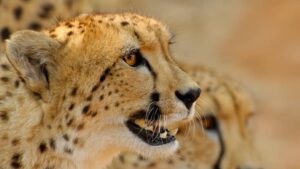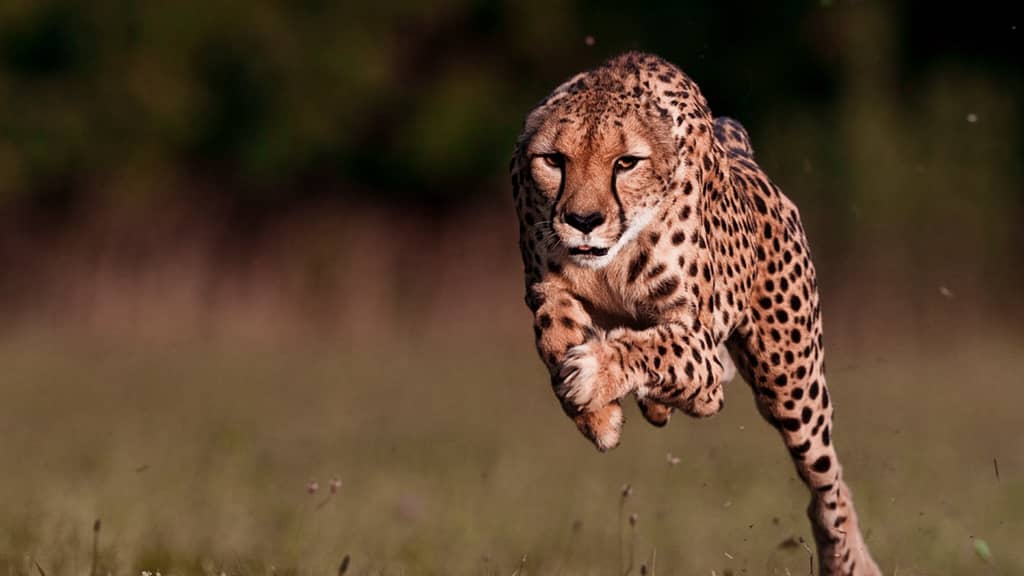
Cheetahs, the charismatic sprinters of the animal kingdom, have captured the imagination of people worldwide. In this article, we delve into the awe-inspiring world of these magnificent creatures, focusing on their astounding speed and stamina. If you’ve ever wondered, “How fast can cheetahs run for how long?” you’re in for a thrilling ride. Let’s embark on this journey to unravel the secrets of nature’s speed champions.
The Need for Speed: How Fast Can Cheetahs Run for How Long
Cheetahs are renowned for their breathtaking speed. They can sprint at an astonishing pace of up to 60 to 70 miles per hour (97 to 113 kilometers per hour). This remarkable speed is a result of their unique adaptations, including lightweight bodies, long-legged builds, and specialized muscles.
Cheetahs Anatomy of Speed
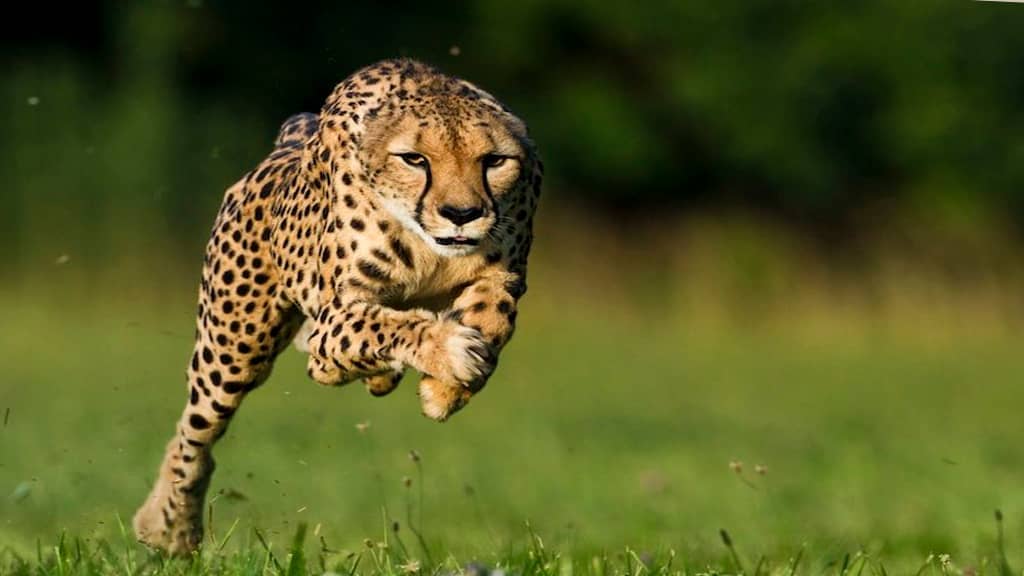
The cheetah, often hailed as the fastest animal on Earth, holds the prestigious title of the fastest land animal. When we talk about the speed of these magnificent creatures, the question that comes to mind is, “How fast can a cheetah run?”
A cheetah’s running speed is nothing short of extraordinary. It can reach speeds of up to 60 to 70 miles per hour (97 to 113 kilometers per hour). This incredible velocity is a testament to the cheetah’s exceptional adaptations.
In the wild, cheetahs harness their running speed for hunting, relying on their lightning-fast sprints to close in on prey. These majestic cats can accelerate from 0 to 60 miles per hour in just a few seconds, making them the ultimate sprinters in the animal kingdom.
Cheetahs’ top speed, measured in miles per hour, is a remarkable feat of nature. This unique ability distinguishes them as the champions of speed among all land animals.
The Sprinters' Stamina
When we discuss the speed of cheetahs, it’s impossible to ignore their incredible sprinting abilities and stamina. These magnificent creatures are not only the fastest animals on Earth but also the fastest land animals, and their running speed is nothing short of astonishing.
Cheetahs can sprint at a breathtaking pace, reaching speeds of up to 60 to 70 miles per hour (97 to 113 kilometers per hour). This extraordinary velocity is a result of their remarkable adaptations, which include lightweight bodies, long legs, and specialized muscles.
However, what truly sets cheetahs apart is not just their speed but also their sprinting stamina. While they can achieve remarkable bursts of speed, they can only maintain their top speed for a short duration, typically around 20 to 30 seconds. The immense energy expended during these sprints necessitates adequate rest and recovery.
Cheetahs’ sprinting prowess is a testament to their incredible abilities, making them both the fastest and the most captivating runners in the animal kingdom. Their unique combination of speed and stamina showcases nature’s remarkable adaptations in action.
The Limits of Endurance
While cheetahs undeniably hold the title of the fastest land animal, it’s crucial to understand the limits of their endurance when discussing how fast they can run. These magnificent creatures are nature’s sprinters, capable of achieving incredible speeds of up to 60 to 70 miles per hour (97 to 113 kilometers per hour).
However, their astounding speed comes with a caveat—cheetahs can maintain their top speed for only short bursts, typically lasting around 20 to 30 seconds. Beyond this brief window, their sprinting stamina wanes rapidly. Unlike endurance athletes, cheetahs’ respiratory and circulatory systems are optimized for short, high-intensity sprints, rather than extended chases.
In the world of wildlife, cheetahs are unparalleled sprinters, showcasing unparalleled speed and agility. Their limits of endurance are a testament to the delicate balance of nature, where each species evolves to excel in specific niches. Cheetahs’ explosive bursts of speed make them remarkable predators, albeit with a finite sprinting capacity.
Cheetahs Strategies of the Hunt
Intriguingly, cheetahs‘ astonishing speed isn’t just a matter of raw velocity; it’s an integral part of their hunting strategy. When we explore how fast cheetahs can run, we must also delve into their techniques for capturing prey.
Cheetahs are opportunistic hunters, relying on both stealth and lightning-quick sprints to secure their meals. Their keen eyesight allows them to spot potential prey from a distance, often observing herds of gazelles or impalas grazing on the African savannah.
Once a target is identified, cheetahs use their stealth to their advantage, getting as close as possible before launching their pursuit. When they finally initiate their sprint, they accelerate rapidly, reaching top speeds of 60 to 70 miles per hour (97 to 113 kilometers per hour) within seconds.
This strategy is a testament to the cheetah’s ability to combine their incredible speed with acute predatory instincts. By closing the gap swiftly, they increase the chances of a successful hunt. However, their sprinting prowess comes at a cost—a tremendous expenditure of energy that requires significant rest afterward.
In the wild, cheetahs’ strategies of the hunt are a captivating dance of precision and power. Their exceptional speed and cunning tactics make them apex predators in their ecosystem, demonstrating the remarkable ways in which nature equips each species for survival.
How does the speed of a cheetah compare to other big cats?
The cheetah is the fastest big cat and land animal, reaching speeds of up to 70 mph, while other big cats have impressive but slower top speeds.
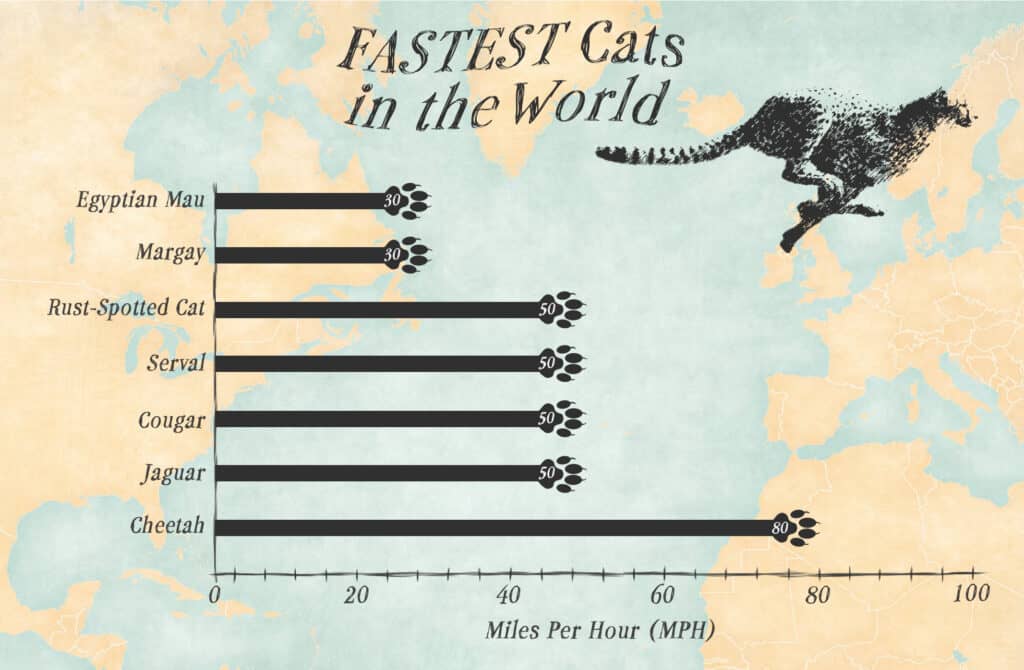
Tiger: Tigers can reach speeds of up to 40 mph (64 km/h)
Lion: Lions can run at speeds up to 50 mph (80 km/h)
Leopard: Leopards can reach speeds of up to 36 mph (58 km/h)
Jaguar: Jaguars can run at speeds up to 50 mph (80 km/h)
While the cheetah is the undisputed champion of speed among big cats, other species have their own unique adaptations and hunting strategies that make them successful predators in their respective habitats.
cheetah maximum speed
The cheetah, often hailed as the fastest animal on the planet and the fastest land animal, boasts an astounding maximum speed. When we explore how fast can cheetahs run, it’s impossible not to be captivated by their sprinting prowess.
Cheetahs are renowned for their exceptional running speed, capable of reaching an astonishing 60 to 70 miles per hour (97 to 113 kilometers per hour). This incredible velocity is a result of their specialized adaptations, including a lightweight body, long legs, and powerful muscles.
Their top speed, often measured in miles per hour (mph), sets them apart as nature’s speed champions. Cheetahs can accelerate from a standstill to their maximum speed in a matter of seconds, making them unparalleled sprinters in the animal kingdom.
Witnessing a cheetah in full stride is a breathtaking spectacle, highlighting the remarkable capabilities of this magnificent creature. Their combination of agility, power, and sheer speed underscores their status as the fastest land animals on Earth.
What is the hunting strategy of the cheetah?
The hunting strategy of a cheetah involves a combination of stealth, speed, and precision. Here are the key elements of a cheetah’s hunting technique:
Stalking: Cheetahs are known for their fast and agile running abilities, often using tall grass or terrain features to approach their prey. They can also use vantage points like termite mounds or low-lying tree branches to observe their surroundings. The cheetah is considered the fastest animal, with a top speed of mph and miles per hour.
Scent and Wind:: Cheetahs are known for their fast running speed, which allows them to approach their prey from a downwind position, avoiding detection. They can run up to miles per hour, making them the fastest land animals. Their running speed is a testament to their agility and speed.
High-speed chase: A cheetah can run at a fast speed, accelerating from 0 to 60 mph (0 to 97 km/h) in seconds. Their long, flexible spine and powerful leg muscles enable them to achieve incredible speeds, making them the fastest land animals and the fastest animals in the world.
Tripping the prey: Cheetahs are known for their fast speed and agility, using their semi-retractable dewclaws to gain traction and maintain balance during chases. They can also trip their prey by swiping at its hind legs or making a quick change in direction. The cheetah is considered the fastest animal and can run at speeds of up to a mile per hour.
Short bursts of speed: Cheetahs are known for their fast running speed, which can reach up to a few hundred yards. However, due to high energy expenditure and overheating during prolonged chases, they can only sustain their top speed for a short distance. Therefore, they must be very close to their prey before starting the chase.
Target selection: Cheetahs are known for their fast and efficient hunting methods, primarily targeting smaller and faster animals like gazelles and impalas. These animals are more likely to be caught off guard and provide a higher success rate for their hunting efforts. However, they may be less likely to engage in a hunt if they spot other predators, as the competition may not be worth the risk.
How does the speed of a cheetah affect its survival in the wild?
The cheetah’s speed is a crucial factor in its survival in the wild. Here’s how the cheetah’s speed affects its ability to thrive in a competitive environment:
Efficient hunting: The cheetah’s fast speed is crucial for efficient hunting, as it allows it to quickly close the gap between itself and its prey. This efficiency is essential for the cheetah, as it needs to consume a large amount of food to sustain its energy levels. The cheetah can run at speeds of up to 59 miles per hour.
Adaptation to open grasslands and savannas: Cheetahs thrive in open grasslands, providing ample space for top speed and maneuverability during chases, making them well-adapted to their habitats.
Enhanced vision and focus: Cheetahs, with their enhanced vision and focus, are adept at spotting prey from long distances and maintaining focus during high-speed chases. Their brain receives information from adapted inner ears, enabling them to maintain head posture and gaze while running at top speed.
Assessing opportunities and dangers: Cheetahs’ quick assessment of their environment, identification of potential threats, and selection of prey, combined with their adaptability and strategic thinking, significantly contributes to their hunting success and survival in competitive environments..
Conservation challenges:: Cheetahs, despite their speed and hunting abilities, face numerous conservation challenges such as habitat loss, illegal wildlife trade, and hunting, resulting in their critically endangered status with less than 8,000 remaining in the wild. Protecting and preserving cheetah populations is crucial for their long-term survival.
FAQs About Cheetah Speed and Stamina
how many miles can a cheetah run per hour ?
A cheetah can run at speeds of up to 60 to 70 miles per hour (97 to 113 kilometers per hour). However, it’s important to note that cheetahs cannot maintain these high speeds for extended periods. They are sprinters and can maintain their top speed for only about 20 to 30 seconds before needing to rest due to the intense energy expenditure during a sprint.
how fast is cheetah?
A cheetah, the fastest land animal on Earth, can run at speeds of up to 60 to 70 miles per hour (97 to 113 kilometers per hour). This extraordinary speed is a result of the cheetah’s unique adaptations, which include a lightweight body, long legs, and specialized muscles that allow it to achieve such incredible velocity. Cheetahs are exceptional sprinters, capable of accelerating from 0 to 60 miles per hour in just a few seconds.
what animal is faster than a cheetah?
While the cheetah is the fastest land animal, when it comes to overall speed, several animals in the animal kingdom can outpace them in specific contexts. For instance:
1. **Peregrine Falcon:** In a dive, peregrine falcons can reach speeds of over 240 miles per hour (386 kilometers per hour), making them the fastest animals in a stoop or hunting dive.
2. **Brazilian Free-Tailed Bat:** In level flight, these bats can exceed 100 miles per hour (160 kilometers per hour), making them the fastest flying animals.
3. **Sailfish:** In the water, sailfish are known to swim at speeds of up to 68 miles per hour (110 kilometers per hour), making them the fastest marine creatures.
So, while cheetahs are the fastest runners on land, they are not the fastest animals overall when you consider various modes of locomotion.
are cheetahs the fastest animal in the world?
Cheetahs are indeed the fastest land animals in the world. They hold the prestigious title of being the swiftest creatures on Earth, with the ability to reach speeds of up to 60 to 70 miles per hour (97 to 113 kilometers per hour). While there are animals that can fly faster or swim quicker, when it comes to running on land, cheetahs are unrivaled in their speed and agility.
how fast can a cheetah run?
A cheetah, the fastest land animal on Earth, can reach speeds of up to 60 to 70 miles per hour (97 to 113 kilometers per hour). This incredible speed is a result of the cheetah’s unique adaptations, including its lightweight body, long legs, and specialized muscles. Cheetahs are built for speed and are capable of accelerating from 0 to 60 miles per hour in just a few seconds, making them unparalleled sprinters in the animal kingdom.
Conclusion
In the world of wildlife, cheetahs stand out as nature’s sprinting champions. Their astounding speed and unique adaptations make them a symbol of agility and grace. While they can’t maintain their incredible pace for extended periods, their hunting strategies highlight their exceptional abilities. So, the next time you wonder, “How fast can cheetahs run for how long?” remember that these magnificent creatures have earned their place as the ultimate speedsters of the animal kingdom.

